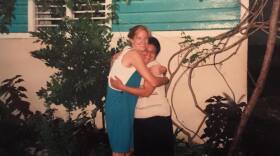Last week I led my last regular classes of the semester. For all of my courses, whether they are introductory level or advanced seminars, I like to leave my students with a solid idea of what they have learned and how they can carry their newly acquired knowledge and skill-sets outside of the classroom and into their futures. I generally begin by asking students to reflect—both individually and in groups—on how their knowledge about anthropology and the skills associated with the discipline have grown over the course of the semester. Where are they now versus where they started? And what are the most important insights they have gained over the course of their studies?
My Introduction to Cultural Anthropology class ended with the reading and discussion of one of my favorite novels, A Thousand Splendid Suns, by Khaled Housseini. I picked this exquisitely written and heart wrenching work of fiction because it so eloquently brings together many of the variables that we have explored over the last fifteen weeks. When and where we are born are factors that are beyond our control, yet time and space play large roles in how we make our way in the world. By using their newly acquired skills of observation and pattern recognition - which are at the core of anthropology - students are able to appreciate how from geography to gender, politics to economics, and religion to education much of how we are is merely happenstance.
Anthropology is the study of humans through time and space. The grand story of humanity is a story of change. The United States of one hundred years ago was vastly different from the United States of today. Western Illinois University looks very different than it did when it was founded in 1899. And the never-ending construction of a by-pass, opening and closing of businesses, and the ebb and flow of families moving in and out of my community of Macomb reflects larger political, economic, and structural variables at work in the world.
Rather than fighting the waves of change, I think we would all be better off if we embraced the words of yogi Sri Swami Satchidananda, who said “You can’t stop the waves, but you can learn how to surf.”
What do I mean by suggesting that we all need to learn to surf? We are in the Midwest after all, where surfing is hard to come by. Consider surfing as a metaphor for life. Like waves on the ocean, change is inevitable, continuous, and unavoidable. Gerry Lopez, one of the original premier surfers of Hawaii’s infamous Pipeline and founder of Lightning Bolt Surfboards writes, “out in the ocean everything is moving, I mean nothing holds still for you… and life is really the same way.”
The very best surfers, those who make riding the waves look effortless, observe the world around them. They take note of the patterns that emerge. They look ahead to see what is behind them, all the while keeping their minds and bodies grounded in the present. Surfers don’t fight the waves, because in struggling against them they gain little and expend much. Instead, they recognize the patterns that emerge and adapt their ride to move forward as smoothly as possible. And as with much else in life, sometimes the ride is beautiful and other times you crash and burn. But because the waves, like life, keep coming, you get back up and ride the next wave that comes your way.
As this semester ends, it is clear to me that many of my students have learned to surf. Taking the lessons of anthropology to heart, they have shown me that they are able to recognize and identify patterns in their own lives thus allowing them to adapt quickly and effectively to the changes around them. Here’s hoping that we all can all find our balance as we constantly readjust to the waves of life. If we can do this, I am sure that our best surfing is ahead of us.
Heather McIlvaine-Newsad is a Professor of Anthropology at Western Illinois University.
The opinions expressed are not necessarily those of the university or Tri States Public Radio. Diverse viewpoints are welcomed and encouraged.






